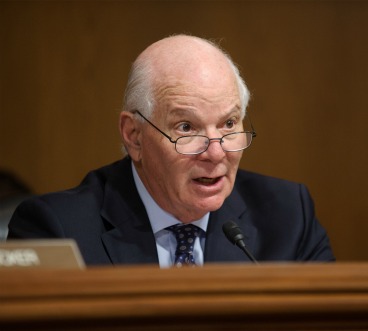Mr. President, I rise today to express my support for the amendment the senior Senator from Arkansas has offered to the H.R. 5515, the Fiscal Year 2019 National Defense Authorization Act, NDAA. Senator BOOZMAN’s amendment is a thoughtful one. It proposes to solicit information from the Department of Defense to help us carefully think through our response to the changed strategic situation in Europe. Russia’s military aggression and Military incursions in Georgia, Ukraine, and elsewhere have made it abundantly clear that we are no longer in the security environment that provided the context for the commitments we made in the 1997 NATO-Russia Founding Act.
The United States and Poland have a long record of highly effective cooperation in military matters. Poland has made important contributions to operations in Iraq, Syria and Afghanistan, and an American-led NATO battle group in Poland is playing an important role in reinforcing NATO’s eastern flank today.
Still, a decision to permanently deploy U.S. forces to the territory of even such a stalwart ally should not be taken lightly. This amendment wisely requests that the Department of Defense provide its assessment of a number of factors that we will need to weigh when deciding whether to take such a step, including the reactions we should anticipate from other allies, possible responses by Russia, and more practical considerations including cost and timing.
Poland needs no reminder about the external threats it faces. After all, it borders Ukraine. However, Poland faces an enemy within: democratic backsliding, which plays into Vladimir Putin’s hands as he aims to undermine democratic values across Europe.
Since 2015, the Polish Government has challenged constitutionalism, eroded checks and balances, and indulged in historical revisionism. The breadth and depth of the government’s actions led the European Commission to conclude in December that Poland’s “executive and legislative branches have been systematically enabled to politically interfere in the composition, powers, administration and functioning of the judicial branch.”
I discussed these concerns in a meeting with Polish Deputy Foreign Minister Marek Magierowski in February, including a controversial law, introduced on the eve of International Holocaust Remembrance Day, which may actually impede research, scholarship, and journalism about the Holocaust. The Department of State rightly observed that this law might have repercussions for “Poland’s strategic interests and relationships—including with the United States and Israel. The resulting divisions that may arise among our allies benefit only our rivals.”
Independence of the judiciary will take another hit on July 3, when a new law will go into effect forcing the early retirement of up to 40 percent of Poland’s 120-member supreme court, the reintroduction of the Soviet-era feature of ‘‘lay judges,’’ and make final judgments subject to ‘‘extraordinary appeals.’’ These developments—very concerning both for Poland and the region—should be part of the administration’s dialogue with Warsaw on comprehensive transatlantic security.




